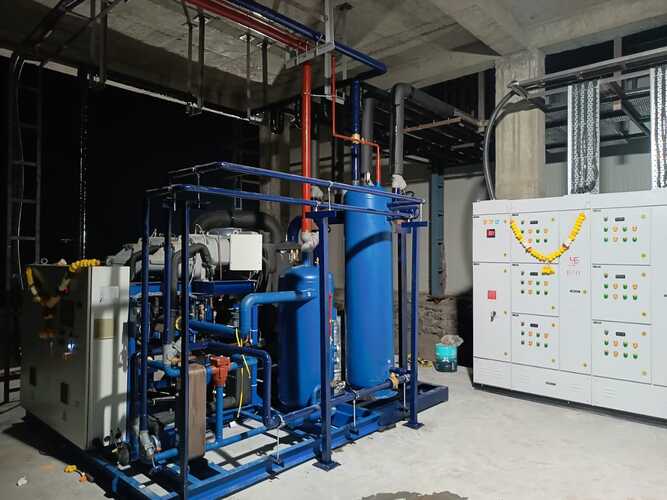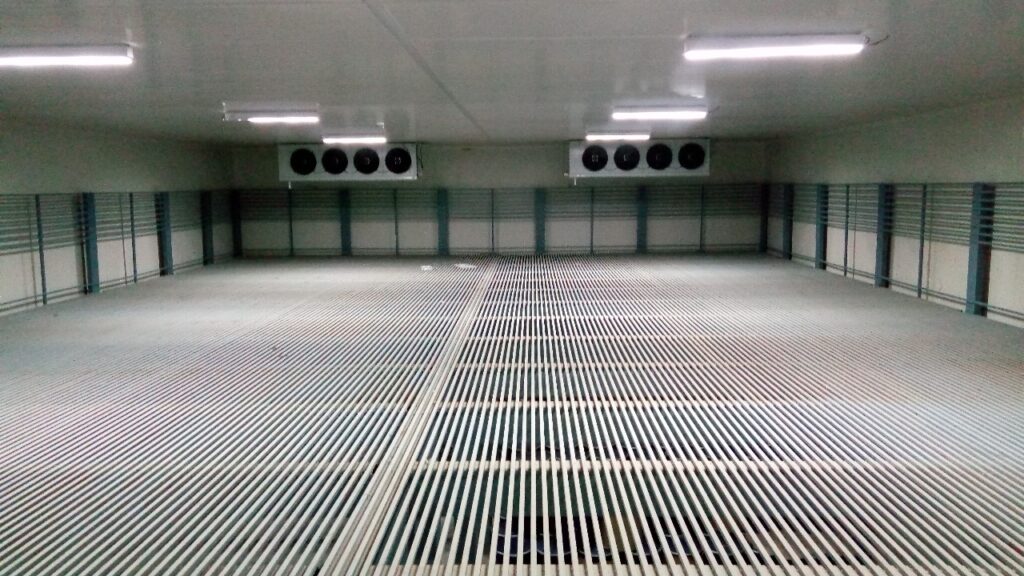Air-Conditioning & Commercial Refrigeration Solutions…
Chillers
Chillers
- Home
- Chillers
Chiller
Chiller
Cold storage is a refrigeration system designed to store perishable goods at low temperatures to prolong their shelf life, maintain quality, and prevent spoilage. This type of storage is commonly used for fruits, vegetables, dairy products, meats, and other perishable items.
Key Features of Chiller Cold Storage
Temperature Control: Chiller cold storage units typically maintain temperatures between 32°F and 50°F (0°C and 10°C). This range is optimal for preserving the freshness and extending the shelf life of many perishable products.
Humidity Control: Proper humidity levels are crucial to prevent drying out or excessive moisture buildup, which can lead to mold and spoilage. Humidity levels are often kept between 85% and 95%, depending on the specific requirements of the stored items.
Insulation: High-quality insulation materials are used in the construction of chiller cold storage units to ensure efficient temperature maintenance and energy conservation.
Airflow and Ventilation: Proper airflow is essential to ensure uniform temperature distribution throughout the storage area. Ventilation systems help maintain air quality and prevent the buildup of ethylene gas or other unwanted gases.
Shelving and Organization: Shelving units are designed to maximize space and facilitate easy access to stored goods. Non-reactive materials like stainless steel or plastic are typically used to avoid contamination.
Monitoring and Control Systems: Advanced chiller cold storage units are equipped with digital monitoring systems to track temperature and humidity levels continuously. Alarms and notifications can alert operators to any deviations from set parameters.
Applications of Chiller Cold Storage
Food and Beverage Industry: Used to store fresh produce, dairy products, meat, fish, and beverages.
Pharmaceuticals: Storage of temperature-sensitive medications, vaccines, and biological samples.
Floriculture: Preserving the freshness of flowers and ornamental plants.
Retail and Supermarkets: Keeping perishable products fresh until they are sold.
Agriculture: Storage of harvested crops before they are processed or sold.
Benefits of Chiller Cold Storage
Extended Shelf Life: Reduces spoilage and waste by maintaining optimal storage conditions.
Maintained Quality: Preserves the taste, texture, and nutritional value of perishable goods.
Safety and Compliance: Ensures that products are stored in accordance with food safety regulations and standards.
Cost-Effective: Reduces losses due to spoilage, leading to cost savings over time.
Flexibility: Can be used for a wide range of perishable products with varying storage requirements.
Considerations for Setting Up Chiller Cold Storage
Size and Capacity: Choose a unit that meets your storage volume requirements.
Location: Install in an area with good ventilation and away from direct sunlight or heat sources.
Energy Efficiency: Opt for energy-efficient models to reduce operational costs.
Maintenance: Regular maintenance and cleaning are essential to ensure optimal performance and hygiene.
Backup Systems: Consider backup power supplies to maintain temperature in case of power outages.
By providing a controlled environment, chiller cold storage units are vital for maintaining the quality and extending the shelf life of perishable goods across various industries.





